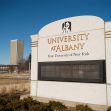Evanston, Illinois, made national news after it proposed a first-of-its-kind reparations program in 2021. This Chicago suburb is making news yet again after a new lawsuit says that the program is discriminatory to non-Black residents.
The lawsuit was filed on May 23 by the conservative activist group Judicial Watch on behalf of six individuals who do not identify as Black or African American. The lawsuit explains that the plaintiffs’ families lived in the town between 1919 and 1968 when discrimination against African Americans was still deeply woven into society.
The lawsuit makes a range of claims, including that the program is a violation of the 14th Amendment. The president of Judicial Watch shared in a news release that “The Evanston, Illinois’ ‘reparations’ program is nothing more than a ploy to redistribute tax dollars to individuals based on race,” and as such, “This scheme unconstitutionally discriminates against anyone who does not identify as Black or African American. This class action, civil rights lawsuit will be a historic defense of our color-blind Constitution.”
The reparations program became a topic growing in popularity following the social unrest riots of 2019. In 2021, the city of Evanston implemented a program that would repay Black residents who lived in the town between 1919 and 1969. During this time, Black residents were subjected to housing discrimination barring them from having access to one of the biggest wealth-building tools in our nation —real estate.
Since its implementation, the Evanston program has repaid 193 residents $25,000 each. These residents were either subjected to or had parents who were subjected to this housing discrimination.
The lawsuit explains that “Plaintiffs enjoy the right to equal protection of the laws as protected by the Equal Protection Clause of the Fourteenth Amendment to the U.S. Constitution,” and that this program violates that protection.
The complaint continues, “Defendant’s use of race as an eligibility requirement injured Plaintiffs because it is a barrier that prevents Plaintiffs from participating in and obtaining payments under the program on an equal footing with persons who are able to satisfy Defendant’s race requirement.”
The lawsuit also takes issue with the manner in which the city is choosing who qualifies for the reparations and who does not, arguing that reparations recipients are not required to show proof that they had family members who experienced discrimination during the 1919 to 1969 time period.
Evanston is not the only city that has some sort of reparations program in place. Other cities including Asheville, North Carolina; Durham, North Carolina; Amherst, Massachusetts; and Providence, Rhode Island, have proposed or are implementing a reparations program for qualifying Black residents.
The lawsuit is seeking a jury trial and is asking the court to find that the City’s requirement of race eligibility is unconstitutional.






